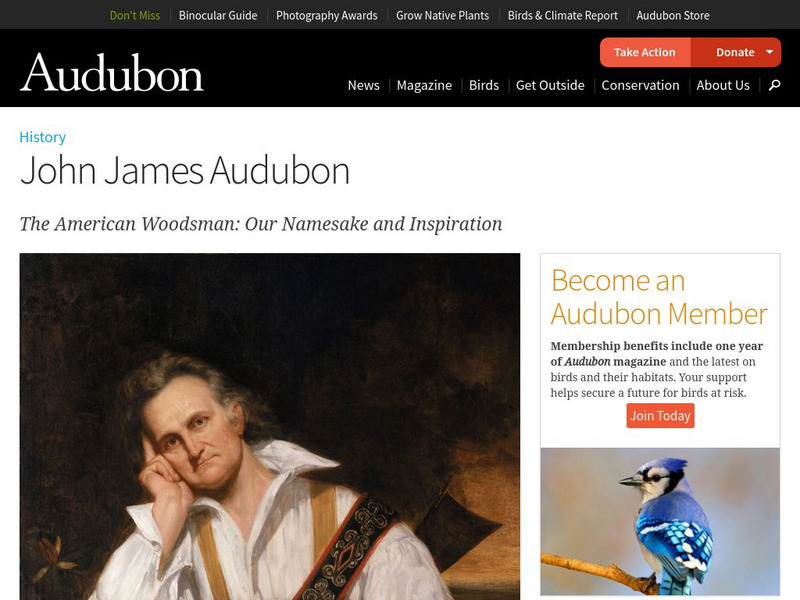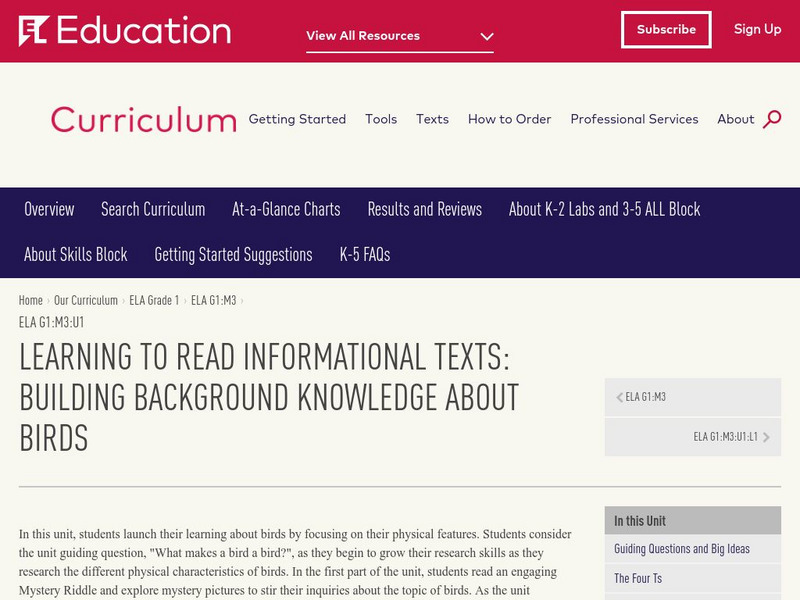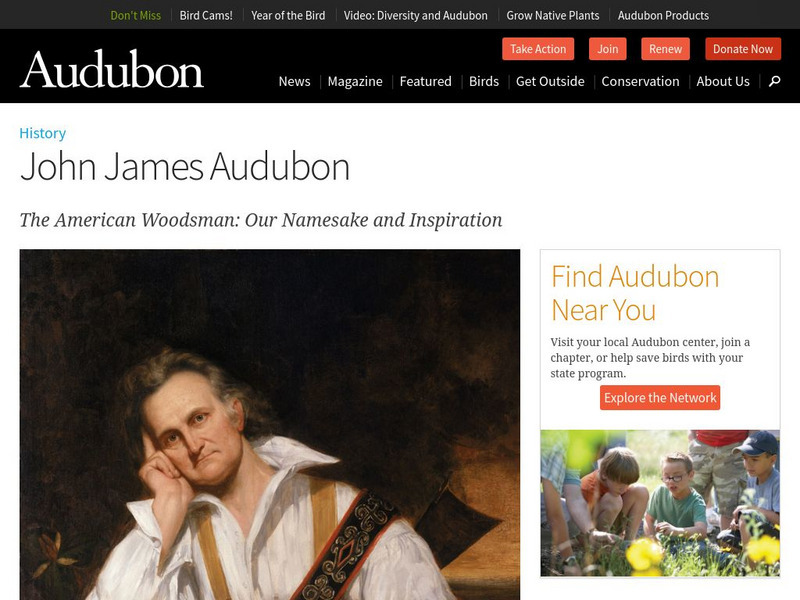Curated OER
Who Am I? Bird Species
In this science worksheet, students examine 16 detailed color pictures of bird species. Students identify each bird. There is no room to write the bird name on the paper and it is assumed that this is an oral activity. Answers are...
Curated OER
Bird Identifier Fill in the Blanks
In this science worksheet, students fill in blanks with the correct letters to identify commonly known birds. Students read the description of physical characteristics and egg colors as clues. There is no word bank.
Curated OER
Birds of Wisconsin
First graders explore the job done by ornithologists. They role play identifying the characteristics that make a bird a bird. They discuss what makes each bird species unique. Students are introduced to Wisconsin's most common and rare...
Curated OER
Discovering the Oasis
Students focus on the types of vegetation and animal life living around local water sources. This lesson can be adapted to any local water source, whether it be a lake, a river, stream or ocean. It has a particular focus on the bird...
Curated OER
Educated Action
Students review what they already know about birds. Using the internet, they discover major issues involved with birds in Illinois. In groups, they determine what they can do to help them and contact a local agency.
Curated OER
Amazing Bird Adaptions--Why Am I A Bird?
Fourth graders identify and classify birds found in Illinois. Using the internet, they discover how birds have adapted over time and how the adaptations have increased their life span. They compare and contrast the various adaptations...
Curated OER
Bird Banter
Students listen to examples of common bird songs of birds found in Illinois. As a class, they discover the importance between the differences in songs and calls. They practice making their own bird calls and songs to end the...
Curated OER
Wetland Safari!
Students identify how humans, fish, plants, birds, insects and other wildlife benefit from wetland environments. They observe a wetland and its inhabitants, draw a migration map that represents how birds use wetlands in traveling long...
Curated OER
Hopscotch Migration
Students examine the use of wetlands by migrating birds. They discuss reasons for the disappearance of wetlands. They discover how humans have affected wetlands as well.
Curated OER
Bird Beak Anatomy
Third graders participate in an activity to determine which tool will work the best to gather food. They create analogies about how the experiment relates to birds. They brainstorm about which adaptation helps or hurts the survival of an...
Curated OER
Birds of A Feather
Students observe and record the many types of birds they see in a month. They discover the many patterns birds follow and compare their results with other classrooms. They complete a field assessment as the final activity for this lesson.
Curated OER
Bird Bulletins
Students, in groups, create a survey to investigate how much their community knows about birds. They graph their findings using a bar graph. Using the data collected, they develop an advertising campaign to increase community awareness...
National Audubon Society
National Audubon Society: Audubon Adventures: Wild About Birds
Colorful and engaging resources for learning about birds. There is a downloadable 4-page guide with information about John James Audubon, guidelines for how to observe and identify birds, and tips on how to be a friend to birds. There is...
Canadian Museum of Nature
Canadian Museum of Nature: Bird Identification Clues
This resource will help you develop your birdwatching skills. It includes how to find birds, basic tips and how to use field marks such as patterns and colours to help distinguish species.
National Audubon Society
National Audubon Society: John James Audubon (1785 1851)
Read the story of John J. Audubon (1785-1851 CE), a talented man who grew up in Pennsylvania and dedicated his life to the study of birds.
National Audubon Society
John James Audubon's Birds of America
Here is the online version of John James Audubon's "Birds of America," as written by Audubon himself in 1840. The site includes the original artwork and text descriptions of each species of bird.
National Audubon Society
National Audubon Society: Audubon's Birds of America
The original text and artwork from Birds of America by John James Audubon, an 1840 edition. Includes families of birds and an alphabetical listing of birds. A section of now-extinct birds and one of state birds have been added.
EL Education
El Education: Learning to Read Informational Texts: Building Background
In this comprehensive unit, students launch their learning about birds by using informational texts. As students read these texts, they build background knowledge and develop their skills as readers of informational texts. Included are...
Utah Education Network
Uen: Nhmu: Birds Will Be Birds
Analyze the physical characteristics of 12 different birds and consider how this enables them to survive in their individual habitats.
American Institute of Biological Sciences
Action Bioscience: Birds: What Can They Tell Us About Our Planet
Birds can offer hints to the health of the planet as they are found everywhere, migrate to many new environments, and play a role in our culture with their vibrant shades and sounds. Identify specific ways we can learn about our own...
National Audubon Society
National Audubon Society: Audubon Adventures: Whose Beak, Whose Feet Game
A game where students must match beaks and feet to the correct birds.
National Audubon Society
National Audubon Society: John James Audubon (1785 1851)
Read the story of John J. Audubon (1785-1851 CE), a talented man who grew up in Pennsylvania and dedicated his life to the study of birds.
National Institutes of Health
National Institute of Health: Matching Game for Niehs Birds!
See if you can figure out what different birds eat. This interactive matching game explores the diets of 17 birds commonly found in the US.
American Museum of Natural History
American Museum of Natural History: Brown Pelican O Logy Card
Flip this interactive OLogy card to find a definition, fast facts, questions and answers, and other bite-size pieces of information about the characteristics of the brown pelican.

























